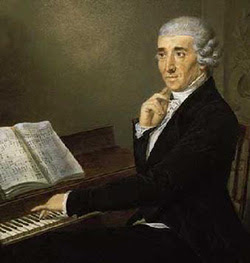
My great-great-grandfather Francis Grenville Ilsley (1831–1887) belonged to a family of singers and musical conductors and performers. The line apparently begins with his grandfather, Nathaniel Ilsley (1781–1870), who married four times and had (at least) fourteen children, eight of whom were notable in Portland, Buffalo, and Newark music circles. I covered the Portland period – and something of the musical careers of Francis L., Ferdinand, Arthur, Elizabeth, Esther, George, and Ann Ilsley – here.
By the late 1830s, the family had begun to scatter, and my great-great-great-grandfather Francis Lunt Ilsley (1804–1874) was advertising his services as an instructor at the Troy (New York) Academy of Music: his juvenile classes, and those for “young Ladies,” would be “progressively and thoroughly instructed in the elementary principles of vocal music, on the Pestolozzian or inductive system.”
Charles H. Kaufman’s Music in New Jersey, 1655–1860: A Study of Musical Activity and Musicians in New Jersey from Its First Settlement to the Civil War (1981) contains a number of references to the Ilsleys, including F. L. Ilsley, who became the conductor of Newark’s First Presbyterian Church choir before 1850. In that year, the City of Newark was paying Ferdinand Ingersoll Ilsley (1808–1890) $1 an hour to teach vocal music to students at the public school. (He was actually only working a half an hour a week, so his remuneration was just 50 cents; most of his income came from teaching students privately.) In February 1853, Ferdinand and his brother Edward Ilsley (1815–1887) received a joint appointment, worth $300 a year, to teach music in the Newark public school system. Kaufman doesn’t say what happened to Uncle Edward, but in 1859 Uncle Ferdinand left his job for a year, returning in 1860. An inquiry followed, hinting at some potential scandal, but the investigators later reported that “he has discharged … with fidelity the duties required of him by [the] Board.” (p. 120)
More than a decade before, the Ilsley family had been instrumental in the first full performance in Maine of Haydn’s Creation oratorio. In 1851, F. L. Ilsley was the choral conductor of Creation in Newark, where the Advertiser published a letter praising him for “awakening, combining, and educating so well the musical talent of the city.” (p. 186) Kaufman lists Ferdinand and Francis Ilsley among the “familiar and popular vocalists in New Jersey who taught music, assisted visiting artists in concert, and gave concerts of their own.” (p. 182) By the end of the 1850s, the rising generation in the family included F. L. Ilsley’s younger children Sarah Helen Ilsley (1833–1899), Eliphalet Clark Ilsley (1837–1866), and Harriet Bradley Ilsley (b. 1841).
The Ilsleys did not limit their activities to Newark. In September 1850, F. I. Ilsley conducted the Albany Harmonia Society in Haydn’s Oratorio of the Seasons for the New-York State Agricultural Society. The concert was a family affair, with Mrs. E. L. Ilsley Merrick [Elizabeth Lunt Ilsley (1816–1900), who married Aaron Colton Merrick in 1847] and Mr. F. L. Ilsley among the solo singers. Four years later, The Musical World and Times reviewed the leading women singers in Buffalo, placing Mrs. Merrick preeminent among them for her “rich, clear and flute-like voice, capable of translating the most difficult passages of music smoothly, sweetly and impressively; [her] enviable reputation both as an instructress and vocalist; … abilities [which] have often been recognised and dwelt upon by the most critical audiences, and whose services are sought after by many of the first families in our city. We know plenty of concert and opera stars whose singing cannot begin to compare with hers.”
By now three generations of the Ilsley family had shone as performers – many of them played instruments as well – so it is natural that the third generation also produced two composers: my great-grandmother’s father Francis Grenville/Frank G. Ilsley and her uncle Eliphalet Clark/E. Clarke Ilsley.
The series continues here.
I see that there appears to be an “F.I. Ilsley” listed as a “trustee” of the Portland (Maine) Sacred Music Society, in their 1836 publication of sheet music and instructions (available as a pdf download from Archive.org). Could this be the “Francis L. Ilsley” you cite in your blog, and if so, was he related to Charles Ilsley, the editor of the Portland “Transcript”?
That would be Ferdinand Ingersoll Ilsley, I think, although it could be Francis Lunt Ilsley. I’m not sure how or if these Ilsleys connect to Charles.
Fascinating story! DId you know that Skene Manor in Whitehall NY has a piano labeled “Grovesteen & Ilsley Albany”? Staff at the house think it is not original to the manor, but was contributed later by family members. A contemporary source says that Ferdinand I. arrived in Albany in August 1839, when he was appointed chorister at the First Presbyterian church. In April 1840 he directed a performance of The Creation. He appears (as “teacher of music” in the 1844 city directory. That same year he went into business with James H. Grovesteen, a piano builder. The partnership did not last long: Grovesteen left Albany in 1845 or 1846. The last reference I can find for F.I.’s piano forte and music store is in 1854, the same year he arrived in Newark.
Paul, this is great — thanks! My sister is looking for a piano: perhaps she should seek out a Grovesteen & Ilsley!